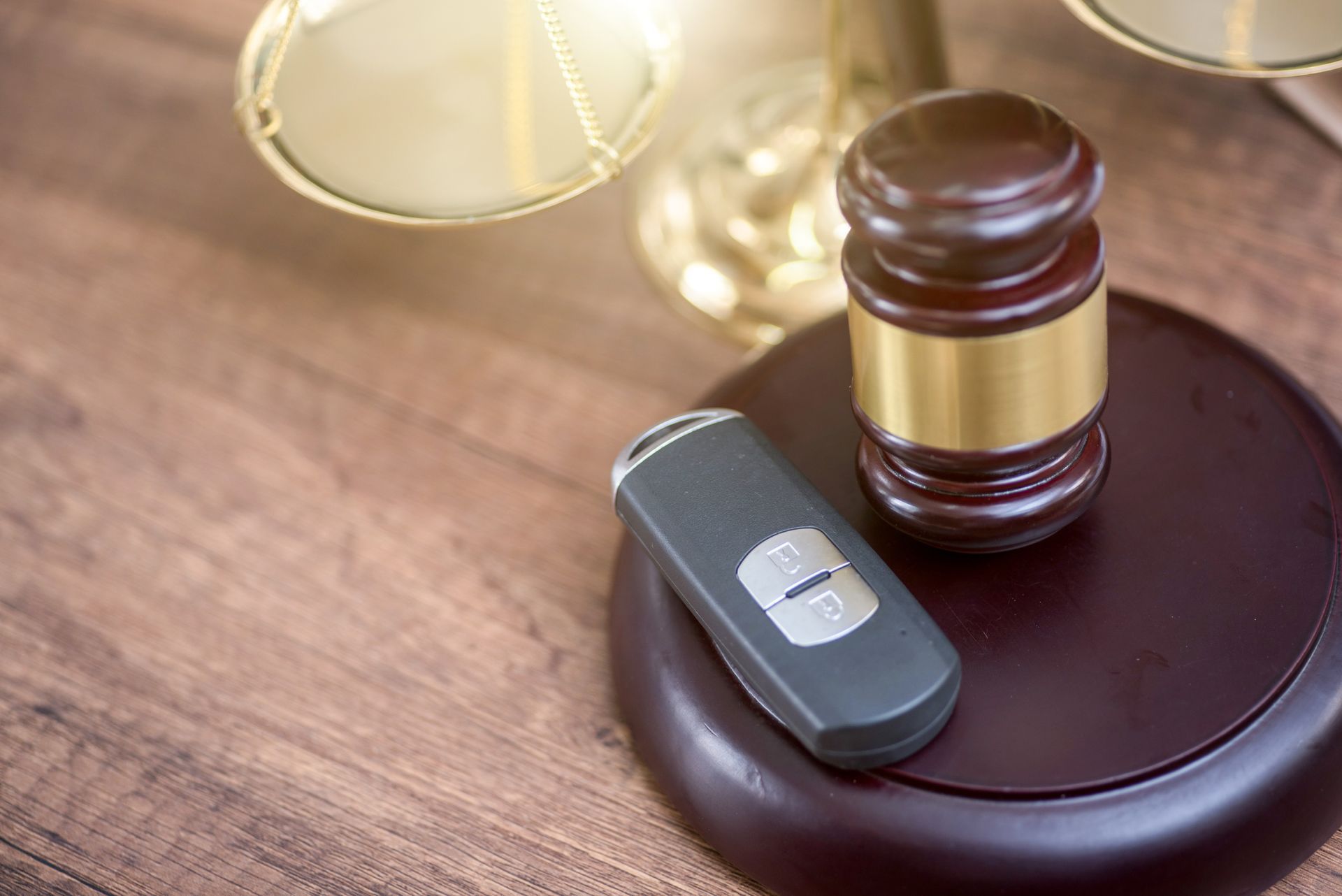Supreme Court Preview
U.S. Supreme Court's New Term
A PREVIEW OF SCOTUS’ 2023-2024 CALENDAR
Below are summaries of some of the cases on SCOTUS’ 2023-2024 docket that have the potential for great impact across the legal and societal landscape. SCOTUS’ new term runs from October 2023 through June 2024.
FIRST AMENDMENT CASES:
Lindke v. Freed
Facts of the case: James Freed created a private Facebook profile that was originally intended to connect with family and friends. Eventually, he grew too popular for Facebook's 5,000-friend limit on profiles. So Freed converted his profile to a "page," which has unlimited "followers" instead of friends and is public so that anyone may "follow" it. Freed designated the page category as "public figure."
In 2014, Freed was appointed city manager for Port Huron, Michigan, so he updated his Facebook page to reflect that new title. On his page, he shared both personal updates about himself and his family and professional updates, including directives and policies he initiated in his official capacity. Kevin Lindke came across Freed’s page and did not approve of how Freed was handling the pandemic. He posted criticism of Freed in response to Freed’s Facebook page, and Freed deleted the comments and ultimately “blocked” Lindke.
Lindke sued Freed under 42 U.S.C. § 1983 for violating his First Amendment rights by deleting his comments and blocking him. The district court granted summary judgment to Freed, and the U.S. Court of Appeals for the Sixth Circuit affirmed.
Question:
When does a public official’s social media activity constitute state action subject to the First Amendment?
O’Connor-Ratcliff v. Garnier is a case scheduled for argument before the Supreme Court of the United States on October 31, 2023, during the court's October 2023-2024 term.
The facts of the case: Petitioners Christopher and Kimberly Garnier are parents of children in the Poway Unified School District in the city of Poway, California, just north of San Diego. The Garniers frequently posted comments critical of the District’s Board of Trustees on the social media pages of the Trustees, including Respondents Michelle O’Connor-Ratcliff and T.J. Zane. For their school-board campaigns, O’Connor-Ratcliff and Zane created personal Facebook and Twitter pages, which they updated with their official titles once elected and continued to use to post about school-district business and news. The Trustees began to hide or delete the critical and often repetitive comments by the Garniers, and then around October 2017, they blocked the Garniers from their social media pages. After the Trustees blocked the Garniers, the Garniers sued them, arguing that their social media pages constitute public fora and that by blocking them, the Trustees violated their First Amendment rights. The district court granted declaratory and injunctive relief to the Garniers but found that the Trustees’ had qualified immunity from the damages claims. The U.S. Court of Appeals for the Ninth Circuit affirmed.
Question: Does a public official engage in state action subject to the First Amendment by blocking an individual from the official’s personal social media account, which the official uses to communicate about job-related matters with the public?
Vidal v. Elster is a case scheduled for argument before the Supreme Court of the United States on November 1, 2023, during the court's October 2023-2024 term.
Facts of the Case: Steve Elster applied to register a trademark saying “TRUMP TOO SMALL.” The U.S. Patent and Trademark Office rejected his application under 15 U.S.C. § 1502(c) because Elster did not receive permission from former president Trump to use his name in a trademark. After Elster appealed, the U.S. Court of Appeals for the Federal Circuit struck down the permission requirement as applied to public figures and politicians because it was an unjustified content-based restriction on speech. The government petitioned for certiorari, and the Supreme Court agreed to review the case.
The questions presented: "Whether the refusal to register a mark under Section 1052(c) violates the Free Speech Clause of the First Amendment when the mark contains criticism of a government official or public figure.”
SECOND AMENDMENT CASE:
United States v. Rahimi is a case scheduled for argument before the Supreme Court of the United States on November 7, 2023, during the court's October 2023-2024 term.
Facts of the Case: Mr. Rahimi was convicted of possessing a gun while subject to a domestic violence protective order, issued after he violently assaulted his domestic partner in a parking lot and shot a gun when he noticed that others had witnessed his abuse. Mr. Rahimi challenged the law as a violation of the Second Amendment right to bear arms. The U.S. Court of Appeals for the Fifth Circuit invalidated the law on its face, holding that individuals subject to domestic violence protective orders have a constitutional right to possess guns. It found no sufficiently identical law extant as of the 1700s or 1800s, even though at that time domestic violence was not considered a serious problem, and women were legally subjugated to men. It refused to treat as sufficient historic analogues other laws that denied arms to individuals found to pose a danger to others. The Fifth Circuit’s rationale denies governments any ability to prohibit gun possession by persons subject to restraining orders — and would presumably invalidate even pre-acquisition background checks, which have stopped more than 77,000 purchases of weapons by individuals subject to domestic violence orders in the 25 years that the law has been in place.
The ACLU submitted an amicus brief, arguing that the Fifth Circuit’s analysis is a misapplication of the Supreme Court’s decision in New York State Rifle & Pistol Association, Inc. v. Bruen, by requiring, in essence, a historical twin law in order to uphold a law today. That approach risks freezing government’s ability to protect people from newly recognized threats and tethers the authority to regulate gun possession to periods when governments disregarded many forms of violence directed against women, Black people, Indigenous people, and others.
The questions presented: "Whether 18 U.S.C. 922(g)(8), which prohibits the possession of firearms by persons subject to domestic-violence restraining orders, violates the Second Amendment on its face.”
FIFTH AMENDMENT CASE:
McElrath v. Georgia is a case scheduled for argument before the Supreme Court of the United States during the court's October 2023-2024 term.
Facts of the Case: The Supreme Court has stated that the “most fundamental rule in the history of double jeopardy jurisprudence” is that acquittals are in-violate, no matter the reason behind them. As a result, no judge can overturn an acquittal, even if the acquittal is based on bias or mistake. And no prosecutor can re-try a defendant on the acquitted charge. But in this case, the Georgia Supreme Court vacated an acquittal, as well as two convictions arising from the same trial, on the ground that the verdicts were inconsistent, or in its words, “repugnant.” It therefore treated them as “valueless,” and vacated them all. As a result, Mr. McElrath faces re-trial on a charge for which he was acquitted.
The ACLU, the ACLU of Georgia, and the National Association of Criminal Defense Lawyers filed an amicus brief in support of Mr. McElrath. They argue that the bright-line rule barring judges from reviewing and reversing acquittals exists to protect the jury’s structural role in the criminal system as a critical safeguard for defendants. The jury stands between the accused and the State, preventing judges or prosecutors from wielding the criminal sanction unless a jury of the accused’s peers agrees. The jury checks judges and prosecutors through its acquittal power, and out of respect for the jury’s sovereignty and the individual’s right to a jury trial, juries have “unreviewable power” to acquit, “even for impermissible reasons.” We argue that creating an exception for verdicts that a reviewing court deems “inconsistent” or “repugnant” would contravene the structural role assigned to the jury in our legal system, and invite judges to reverse acquittals with which they disagree.
The questions presented: "Does the Double Jeopardy Clause of the Fifth Amendment prohibit a second prosecution for a crime of which a defendant was previously acquitted?"
DEFERENCE TO AGENCY DECISIONS:
Loper Bright Enterprises v. Raimondo is a United States Supreme Court case challenging the scope of the Chevron deference doctrine and its application by the United States Court of Appeals for the District of Columbia Circuit to uphold the National Marine Fisheries Service’s (NMFS) interpretation of a federal fishery law. The case is scheduled for argument before the Supreme Court of the United States during the court's October 2023-2024 term.
The issue: The case challenges the D.C. Circuit's application of Chevron deference to uphold the NMFS' interpretation of the Magnuson-Stevens Act. The Chevron deference, or Chevron doctrine, is an administrative law principle that compels federal courts to defer to a federal agency's interpretation of an ambiguous or unclear statute that Congress delegated to the agency to administer. The principle derives its name from the 1984 U.S. Supreme Court case Chevron U.S.A., Inc. v. Natural Resources Defense Council, Inc.
Facts of the case: A group of commercial fishermen who regularly participate in the Atlantic herring fishery sued the National Marine Fisheries Service after the Service promulgated a rule that required industry to fund at-sea monitoring programs at an estimated cost of $710 per day. The fisherman argued that the Magnuson-Stevens Fishery Conservation and Management Act of 1976 did not authorize the Service to create industry-funded monitoring requirements and that the Service failed to follow proper rule-making procedure. The district court granted summary judgment for the government based on its reasonable interpretation of its authority and its adoption of the rule through the required notice-and-comment procedure. The U.S. Court of Appeals for the D.C. Circuit affirmed.
Questions:
1. Does the Magnuson-Stevens Act authorize the National Marine Fisheries Service to promulgate a rule that would require industry to pay for at-sea monitoring programs?
2. Should the Court overrule Chevron v. Natural Resources Defense Council or at least clarify whether statutory silence on controversial powers creates an ambiguity requiring deference to the agency?
Danco Laboratories v. Alliance for Hippocratic Medicine, Food and Drug Administration v. Alliance For Hippocratic Medicine (on the emergency docket):
The drug at the center of the cases, mifepristone, is part of a two-drug protocol used to end pregnancies in their early stages. The FDA initially approved the drug in 2000, and in 2016 and 2021 it made several changes to the conditions on the use of the drug – allowing the drug to be used through the 10th week of pregnancy, rather than only through the 7th week, allowing health-care providers who are not physicians to prescribe the drugs, and allowing the drug to be prescribed through telehealth appointments and sent through the mail. A group of doctors and medical groups opposed to abortion challenged the FDA’s approval of the drug last year, arguing that the drug regimen was “unsafe.”
U.S. District Judge Matthew Kacsmaryk, who has issued a number of conservative rulings since he was appointed to the bench by President Donald Trump in 2017, found that the FDA had approved the drug despite “legitimate safety concerns.” He suspended both the FDA’s approval of the drug and the later changes to the conditions on the use of the drug. After the 5th Circuit put only part of Kacsmaryk’s order on hold, the Biden administration and Danco went to the Supreme Court, asking the justices to freeze the entire order to maintain the status quo until the dispute is resolved. The justices agreed to do so in a brief unsigned order on April 21, with two justices – Justices Clarence Thomas and Samuel Alito – indicating that they would have denied the request.
The case then went back to the 5th Circuit, which heard oral argument in May. In a 62-page decision issued last month, the court of appeals ruled that the doctors and medical groups had brought their challenge to the FDA’s initial 2000 approval of mifepristone too late, and it left the agency’s 2019 approval of generic mifepristone in place. But the court of appeals agreed with Kacsmaryk that the FDA’s 2016 and 2021 actions increasing access to the drug, such as allowing it to be used later in pregnancy and allowing it to be prescribed through telehealth appointments, should be put on hold.
The Biden administration and Danco appealed to the Supreme Court three weeks later. U.S. Solicitor General Elizabeth Prelogar, representing the federal government, emphasized that the FDA’s original approval had rested on the agency’s “scientific judgment that the drug is safe and effective,” and that the agency had “modified the original conditions of approval as decades of experience have further confirmed the drug’s safety.” She told the justices that allowing the ruling by the 5th Circuit to stand would have “damaging consequences for women seeking lawful abortions and a healthcare system that relies on the availability of the drug under the current conditions of use.” But more broadly, she noted, it was “the first time any court has restricted access to an FDA-restricted drug based on disagreement with FDA’s expert judgment about the conditions required to assure that drug’s safe use—much less done so after those conditions had been in effect for years.”
In its own filing, Danco told the justices that the core question in the case was “whether courts can disregard constitutional and statutory limits on judicial review of executive action in order to overrule an agency decision they dislike.” Echoing the Biden administration’s arguments, it argued that for “the women and teenage girls, health care providers, and States that depend on FDA’s actions to ensure safe and effective reproductive health care is available, this case matters tremendously.” And Danco cautioned that “for the pharmaceutical and biotechnology industry, permitting judicial second-guessing of FDA’s scientific evaluations of data will have a wildly destabilizing effect.”
Stay tuned for updates on the above cases.
CONTACT YOUR ATTORNEY
If you or someone you know has been injured, contact Dave Thomas at The Thomas Law Firm for a free evaluation of your legal rights. Dave Thomas is an experienced personal injury attorney, specializing in motor vehicle, trucking, motorcycle and bicycle accidents.








